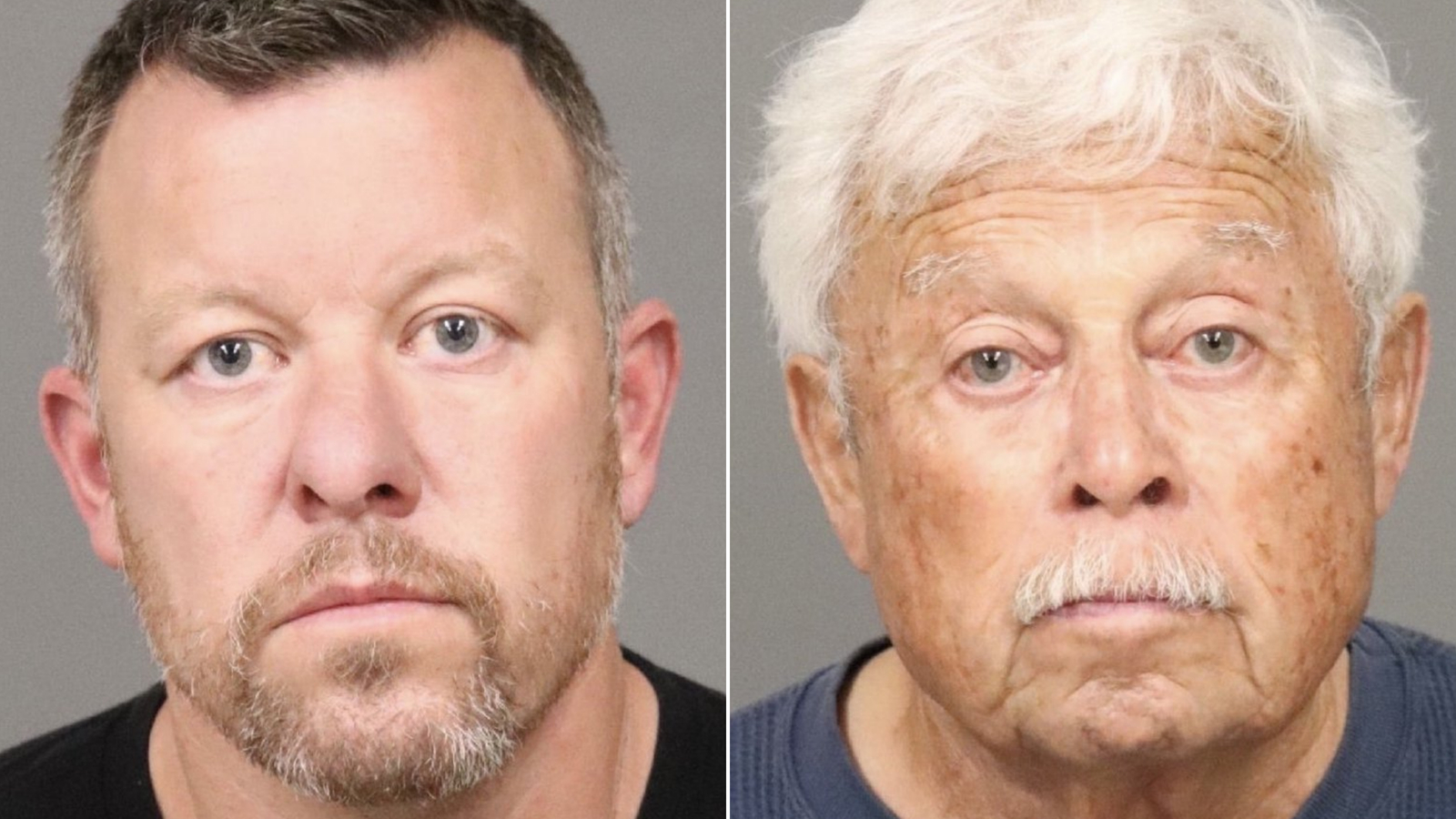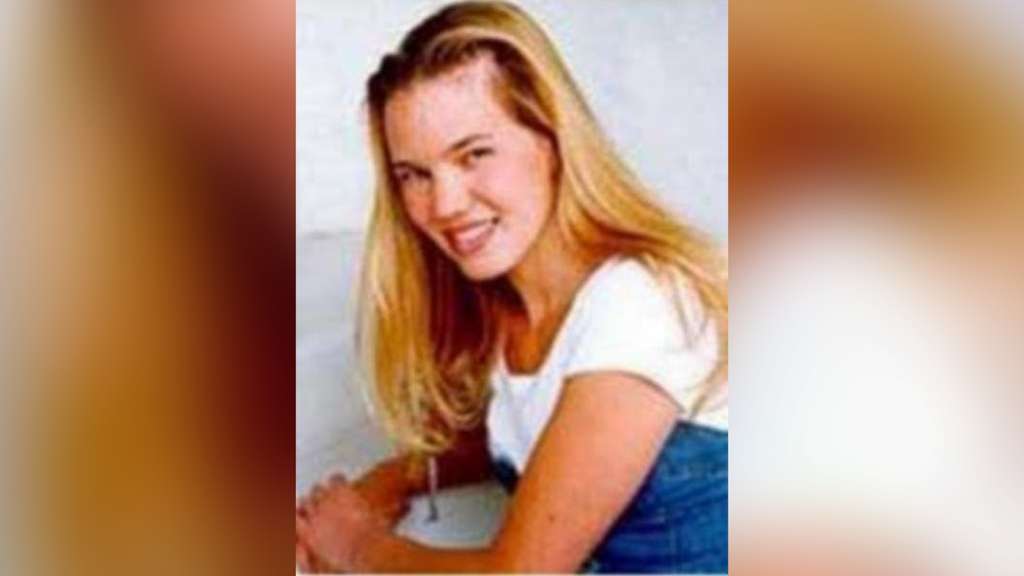LOS ANGELES (AP) — Missing California college student Kristin Smart was killed in 1996 during an attempted rape by a fellow student and the suspect’s father helped hide her body, the San Luis Obispo County district attorney said Wednesday.
Prosecutors filed a first-degree murder charge against Paul Flores and an accessory after murder charge against his father, Ruben Flores, for helping him conceal Smart’s body, which has never been found, District Attorney Dan Dow said.
The two were arrested Tuesday after years of investigations and searches that recently led to evidence connected to Smart’s killing.

Smart, 19, of Stockton, was last seen May 25, 1996, while returning to her dorm at California Polytechnic State University campus in San Luis Obispo after an off-campus party. She was inebriated at the time and Flores, a fellow freshman at the school, had offered to walk her home.
Flores killed Smart in his dorm room, Dow said. Investigators, who launched a renewed search Tuesday at his father’s property in nearby Arroyo Grande, believe they know where the body was buried but have not yet located it or disclosed the location.
Dow urged the public to come forward with any information they may have about the killing or other crimes Paul Flores may have committed.
In more recent years, Paul Flores frequented bars around his home in the San Pedro area of Los Angeles area and may have committed other sexual assaults, Dow said. He didn’t disclose what investigators found, but said they are seeking other crime victims.
“We have evidence that we do believe there were other people not yet identified that have had some kind of a criminal act perpetrated on them by Mr. Flores,” Dow said. “We’re concerned about sexual assault.”
Prosecutors filed a notice in court that they would seek to introduce evidence of other sex crimes to show Flores attempted to rape Smart.
Flores has been under suspicion from the earliest days of Smart’s disappearance. He has gone from being a “person of interest” to a “suspect” to “the prime suspect” — and, now, defendant.
He and his father are in jail and scheduled to be arraigned Thursday.
San Luis Obispo County Sheriff Ian Parkinson said the arrests came after a search of the elder Flores’ home last month using ground-penetrating radar and cadaver dogs turned up new evidence linked to Smart’s killing.
Smart’s family issued a statement saying it was a bittersweet day they had long waited for and a first step toward bringing their daughter home.
“While Kristin’s loving spirit will always live in our hearts, our life without her hugs, laughs and smiles is a heartache that never abates,” they said. “The knowledge that a father and son, despite our desperate pleas for help, could have withheld this horrible secret for nearly 25 years, denying us the chance to lay our daughter to rest, is an unrelenting and unforgiving pain.”
Flores, 44, was arrested at his home in the San Pedro area of Los Angeles and taken to a police car in handcuffs wearing pajama bottoms and a surf T-shirt. His father, Ruben Flores, 80, was arrested at his Arroyo Grande home — about 15 miles (24 kilometers) south of the university.
New witnesses were found in recent years and warrants allowed investigators to intercept and monitor Paul Flores’ phone and text messages and search his own home, along with those of his mother, father and sister that turned up new evidence, Parkinson said. He declined to offer more details because search warrants are sealed.
Parkinson also credited the podcast “Your Own Backyard” for giving the case renewed widespread attention that led to a key witness coming forward.
The podcast’s creator, Chris Lambert, grew up in the area and was intrigued by a billboard offering a $75,000 reward for information leading to Smart.
“Driving past that billboard was a periodic reminder that, oh yeah, they still haven’t found that girl,” Lambert said on the podcast’s opening episode. ”It’s different when somebody goes missing in your own backyard.”
Parkinson, who held his news conference near where Smart was last seen alive with Flores, acknowledged missteps by law enforcement hampered the investigation.
Smart wasn’t reported missing until three days after she was last seen. A dorm mate at the time said police were initially reluctant to take a missing persons report because it was Memorial Day weekend and she might have left the campus.
Smart’s family said in their statement that “an indifference and lack of resolve we experienced early on set the course for many years.”
The Smart family filed a $40 million lawsuit in 1996 against Paul Flores and added the university for allegedly not protecting their daughter. The case has been stayed awaiting a criminal case outcome, a family spokesman said.
“There really is no hiding the fact that there was mistakes made early on and it made it much more difficult,” Parkinson said. “You know that first 48 hours is pretty critical in a missing person or a homicide.”
Parkinson likened the case to a puzzle where missing pieces are located, leading to new evidence and locations to search that then revealed other information.
“It’s a very slow process to find each of those little pieces,” he said.
They served over 40 search warrants at 16 locations over the years, collected nearly 200 new items of evidence and used modern DNA techniques to test more than three dozen older pieces of evidence. So much evidence was compiled that it would fill three terabytes on a computer hard drive, he said.
Paul Flores has remained mum through the years, invoking his Fifth Amendment right to not answer questions before a grand jury and in a deposition for the lawsuit brought against him.
Flores had nothing to say when arrested, Parkinson said.
He was held without bail. His lawyer, Robert Sanger, declined to comment.
Ruben Flores was being held on $250,000 bail. His lawyer, Harold Mesick, didn’t immediately return an email message seeking comment from The Associated Press but he told the Los Angeles Times that his client was “absolutely innocent.”
Copyright 2024 The Associated Press. All rights reserved. This material may not be published, broadcast, rewritten or redistributed.

